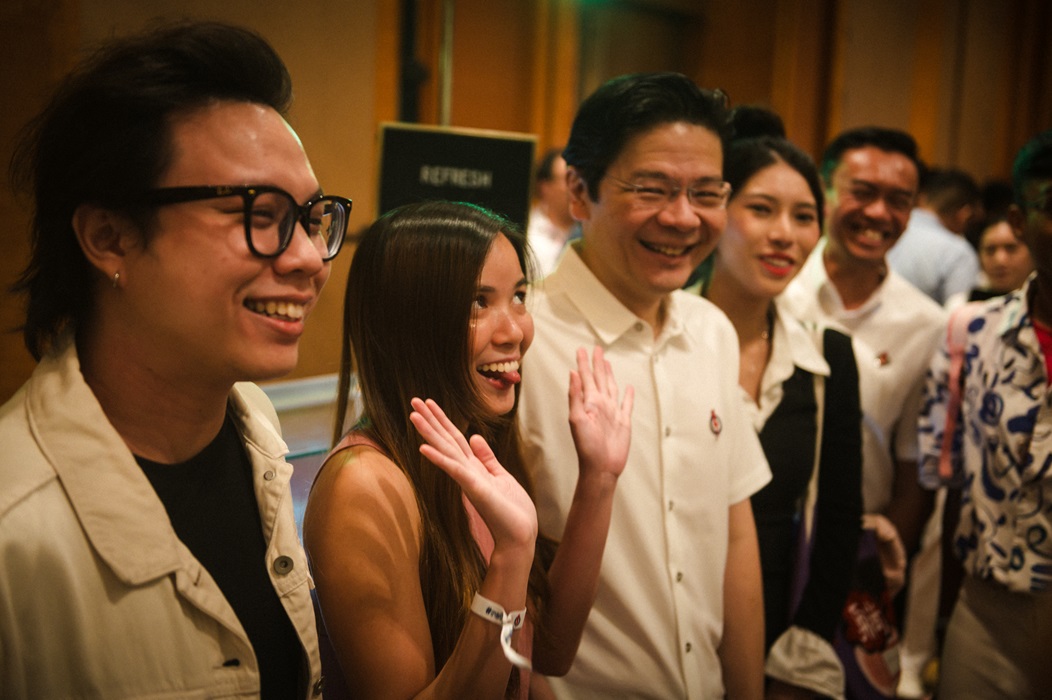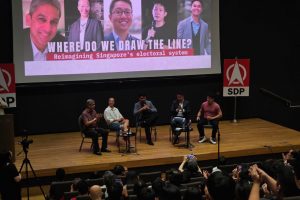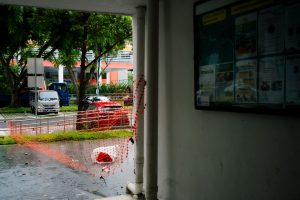Top Image: Petir.sg / Screengrab
The PAP’s new BFFs are influencers.
PM Wong recently unveiled two new groups advocating for climate change and mental health. This is in part due to their network of partners and ‘activists’ (the phrase ‘activist’ used extremely loosely here), who were invited to a thank-you event on June 8.
This network has a name befitting a Disney Channel show. They’re called the ‘Friends of the PAP’. Among their esteemed ranks are influencers, munching on ice cream and fistbumping PM Wong. #Sponsored.
Despite the event highlighting two new intergenerational issues, the coverage and discussion following has been about the influencers in attendance. What does it mean to be a Friend of the PAP? How were they selected? What is the nature of engagement between influencers and the party?
Desmond Lee attempted a response, but it left us with more questions than answers. While influencers have brand deals with the government all the time, this network is meant to be different. As Desmond Lee himself mentioned, there’s an expectation that influencers will also “disagree” yet “work with the PAP” to go beyond advertising and start getting political.
What did that look like on June 8th, and more importantly, what should it look like going forward?
The PAP Slayed, Bestie!
The influencers present generally avoid politics on their pages, and this was reflected in the content that emerged from the June 8th event.
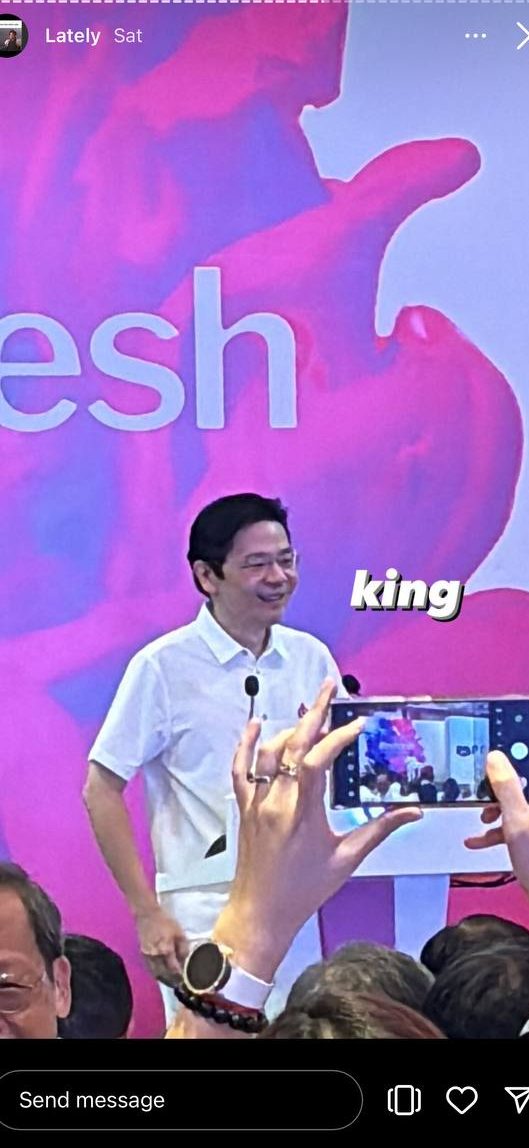
Judging solely by the handshakes and selfies, and proudly declaring PM Wong “King,” the content creators within the network didn’t behave like citizens engaged in robust civil discourse. They didn’t post the words “climate change” or “mental health” on their pages. They were acting like influencers who were invited to a brand event.
While that’s textbook influencer marketing, it isn’t adding up with what Desmond Lee said about inviting them to “get feedback from the ground”. It calls into question what their purpose is at the event and, largely, what the ‘Friends of the PAP’ network is for.
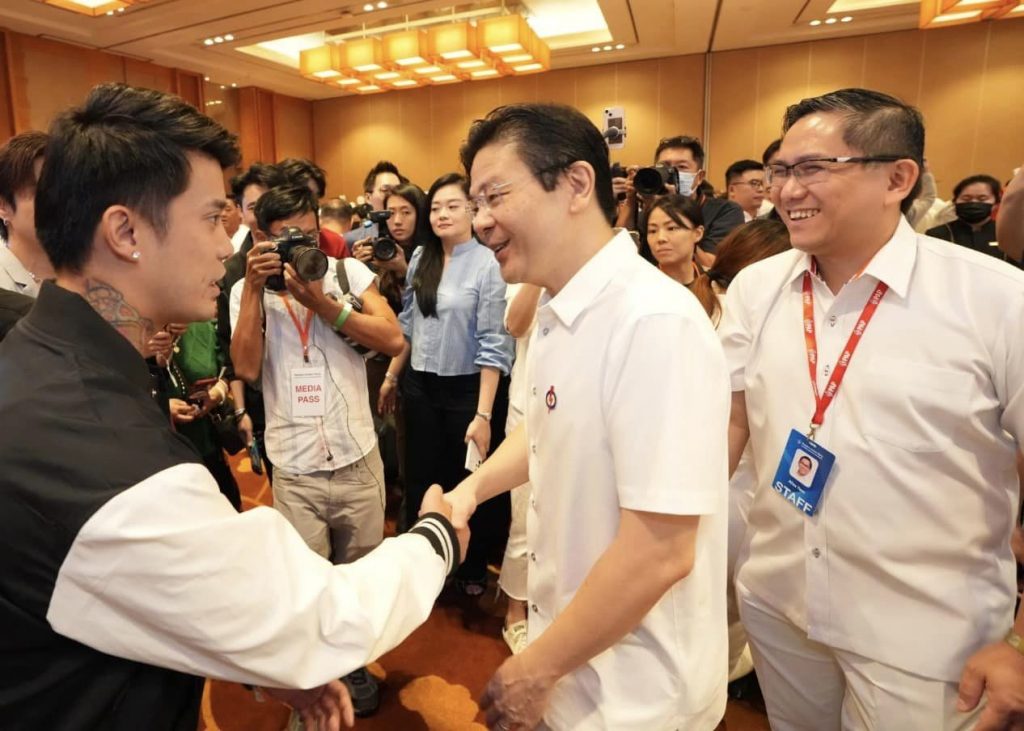
Those captured in pictures were among the most apolitical influencers in the sphere: influencers like Simon Khung and Amy Ang review food and make skits. Famous actors who influence on the side, like Yang Yan, dedicate their social media presence to brand deals.
In examining who was present, it gives us an idea of the kinds of influencers that are invited to participate in government events. It sends a value judgement. Only creators who are apolitical to begin with are able to befriend the party. But when the whole point of your clique is to chat candidly, it’s grounds to rethink the relationship.
More importantly, how is the public reacting? (Not well.)


We often hear a common sentiment regarding content creators engaging with politics, which is that they shouldn’t. They’re not political experts. They have no obligation to weigh in on socio-political issues. When online personalities who’re known for comedic skits and GRWM videos suddenly want to talk about the dangers of drug trafficking, does that sound like it comes from a genuine place?
The public sentiment reflects that. As one commenter puts it, it feels like they’re selling out.
Crucially, politics cannot become a brand deal. This isn’t your regular friend group catchup. These influencers are supposed to be part of a larger network to help the PAP refresh their ideas on pressing issues. It’s precarious if that relationship devolves into mere transaction—where political parties commission popular content creators to appeal to younger voters.
And it might prove ineffective, judging from the public’s reaction. When the marketing strategy is so in your face, it’s hard for the general public to buy the authenticity of their partnership.
There’s a burden to be objective when any public voice becomes political. An influencer’s credibility in the political sphere suffers if they’re ever on a party’s payroll.
Political Potential
There’s untapped potential for the kind of meaningful discussions PAP is itching for. There isn’t an official list of who was or wasn’t there, but Simon Khung (@simonboyyyyyyy) was the most eminent of the pack.
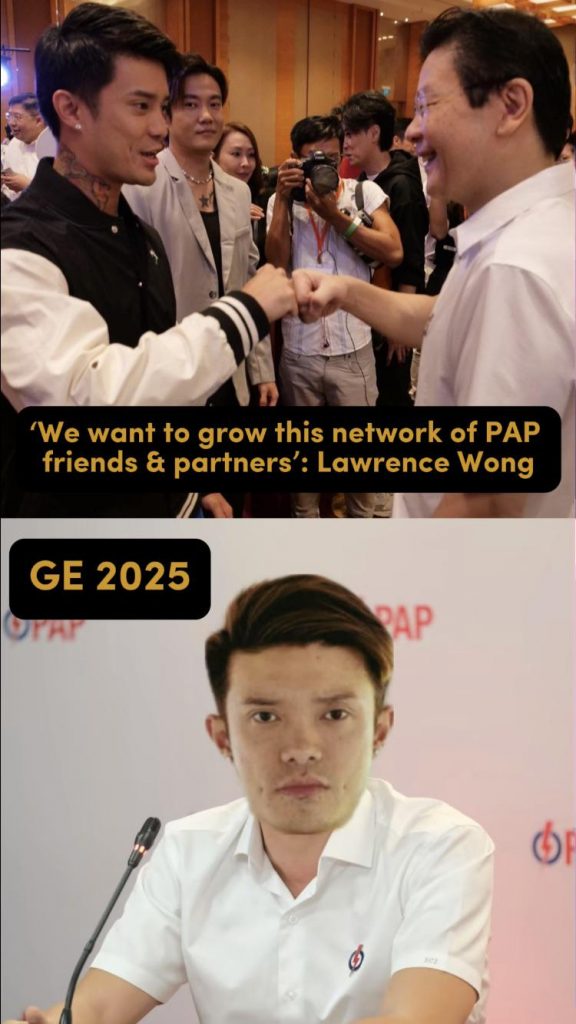
Simon’s the centre of the ‘Friends of PAP’ memes, but he’s arguably got the most political potential. He’s had a storied journey with drug addiction. What if he had publicly weighed in about his struggles with mental health, which drove him to addiction? It’s an extremely nuanced and personal view of the intersections between drug addiction and mental health—one that only Khung could provide.
Or what about Amy Ang? She’s famous for her POV-style skits about school. What if she had educated PM Wong on Gen Z terms like ‘gifted kid burnout’ that litter her videos? Or spoken candidly about the extreme stress she faced in secondary school?
Additionally, the Friends of PAP network is extremely opaque. No one knows who is being engaged and how they’re having these candid conversations. What are the parameters for an influencer to be kosher enough to be a ‘friend’? Who decides the talking points these influencers are encouraged to push out?
There’s a clear gap that influencers can fill, and that’s optimising content for social media. We would have loved to see a video of PAP politicians actually discussing climate change and mental health with their network—seeing the whos, hows, and whys. An influencer, armed with their content creation knowledge and their ring light, could do that.
Let content creators do what they do best: create content.
Mixing Business and Friendship
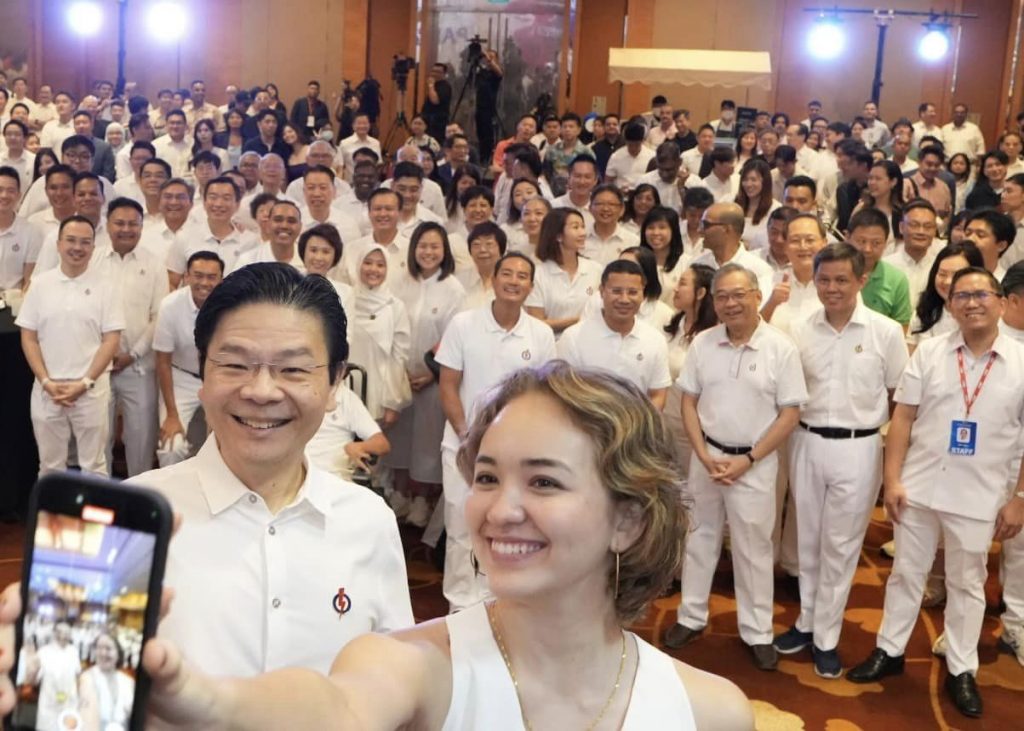
As long as parties want to appeal to a younger generation, influencers are bound to get involved. Like it or not, they’ll always be part of the outreach strategy now.
Our guess is we’ll see more influencers creating content on mental health and climate change. Singaporeans are rightly sceptical about their involvement. But beyond being critical, how can we imagine a more productive relationship between content creators and any politician from any party?
A great place to start is transparency. Like any piece of sponsored content, influencers need to declare the nature of their partnership to gain respect and understanding from their discerning audience.
Another is genuine civic engagement. If influencers want to dip their toes into political waters, they should form stances on socio-political issues and discuss them in front of the camera. Allowing influencers to actually engage publicly with politicians with their unfiltered ideas might help dispel public perceptions of transactionality.
Right now, what these influencers and the PAP seem to have is purely business. And until we understand how they fit in the PAP’s lofty goal to evolve the party’s ideas, creators will remain business partners.
Because real friends call each other out.

